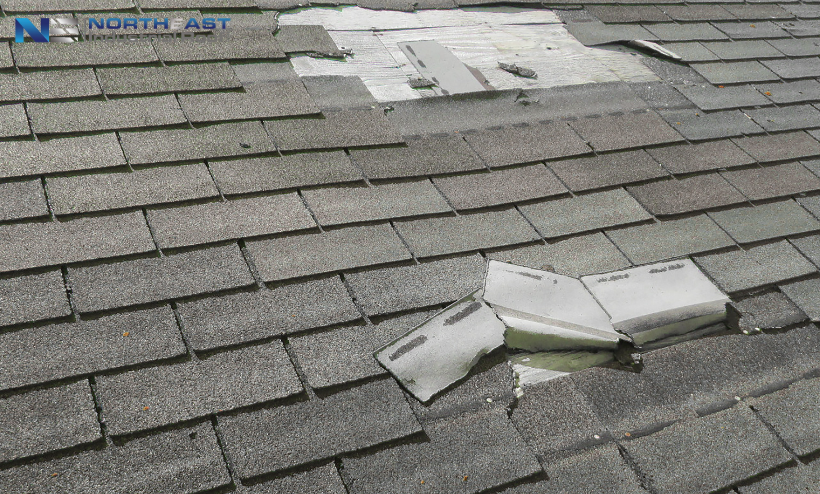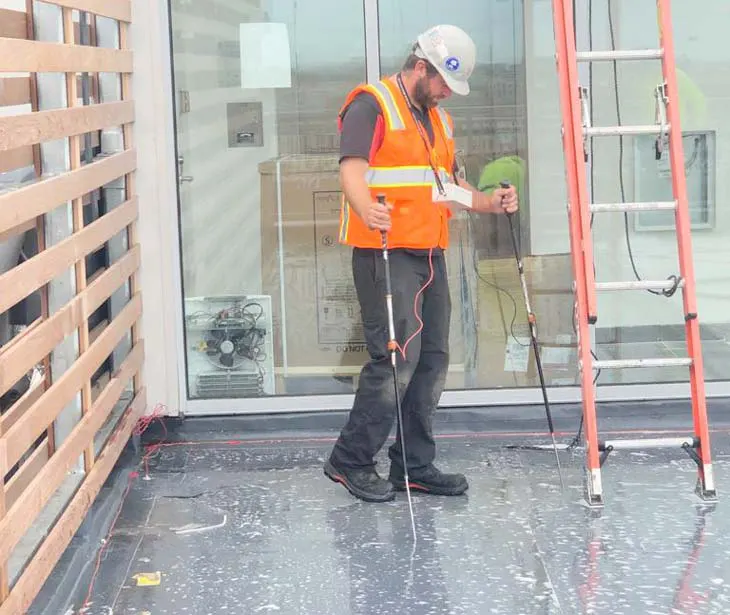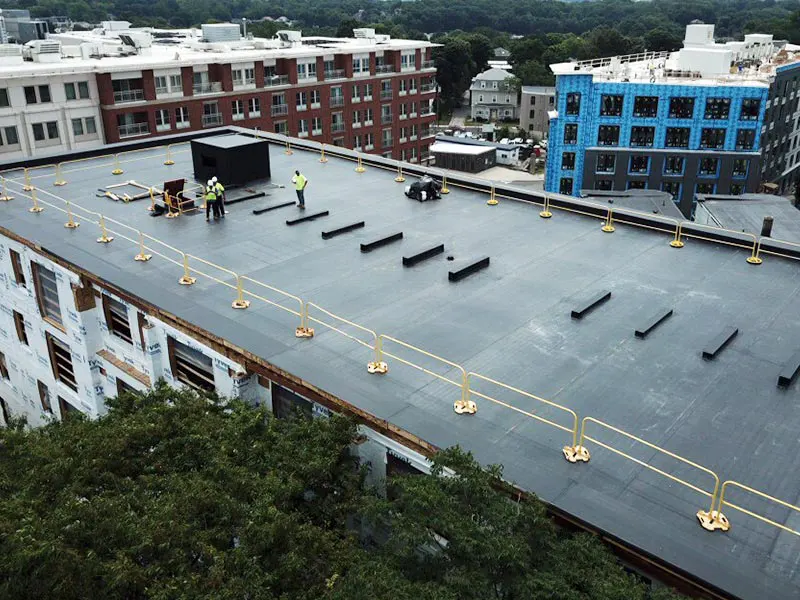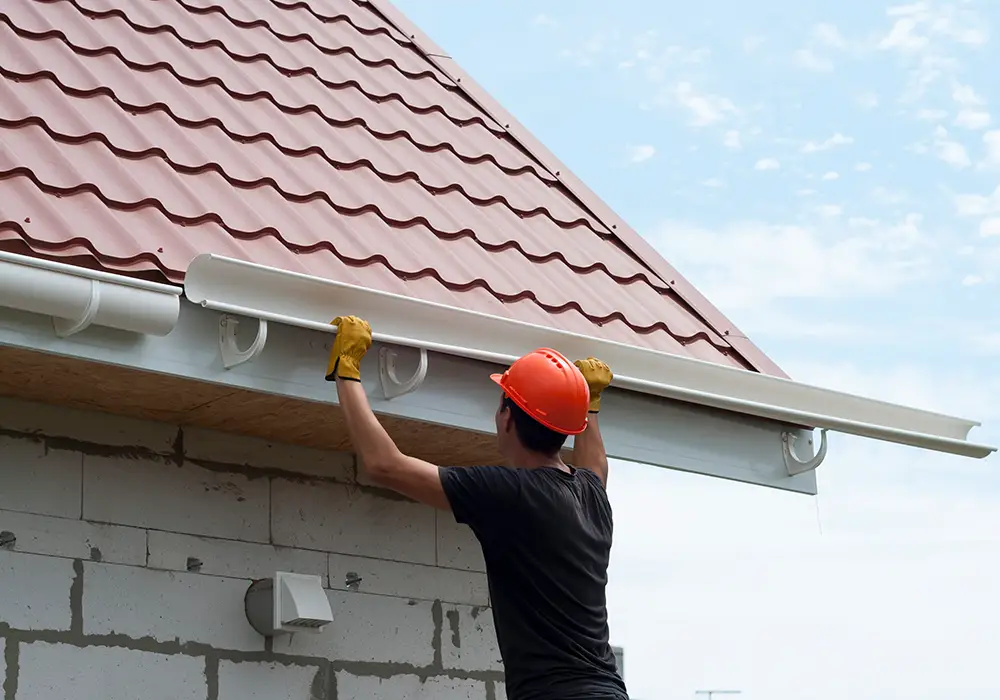Discover the pros and cons between the two most popular roofing systems.
January 20th, 2023
TPO (thermoplastic olefin) and PVC (polyvinyl chloride) roofing systems are two popular types of commercial and industrial roofing. Both have their pros and cons, and the choice between them will depend on the specific needs of your building.
TPO roofing system
When it comes to TPO roofing systems, one of the main advantages is its resistance to heat and UV light. What is TPO roofing material made of? TPO is made from a mixture of thermoplastic polymers and additives, which makes it an excellent choice for hot climate areas as it can withstand high temperatures and UV radiation. TPO roofing systems are also highly weather-resistant, including strong winds, hail and snow. They are also easy to install and maintain, and TPO roofing system is known for its durability and longevity, which makes it a cost-effective solution for commercial and industrial buildings.

PVC roofing system
What is PVC roofing material? PVC roofing systems are made from polyvinyl chloride, a highly durable and resilient material. They are also resistant to UV light and heat, and are able to withstand extreme weather conditions. Additionally, PVC roofing is highly weather-resistant, including strong winds, hail and snow, just like TPO. Is it affordable? They are also easy to install and maintain, and have a long life expectancy which makes them a cost-effective solution.

Setup
The preparation process for installing TPO and PVC roofing systems is similar. They both include the removal of the old roof, inspection of the underlying deck, repairs to the deck if necessary, installation of underlayment, vapor barriers, and the installation of new gutters and drains. After that, the new TPO or PVC roofing is installed.

Differences
What is the difference between PVC and TPO roofing? One of the main differences between TPO and PVC roofing systems is the cost. TPO roofing systems tend to be more expensive than PVC roofing systems, and may require more maintenance over time. Additionally, TPO roofing systems may be more prone to cracking and splitting if exposed to extreme weather conditions.
In general, the choice between TPO and PVC roofing systems will depend on the specific needs of your building. If you are looking for a roofing system that is heat and UV light-resistant, highly weather-resistant, and easy to install and maintain, TPO roofing systems may be a good option. However, if you are concerned about cost and maintenance, a PVC roof may be a better choice.
Conclusion
In summary, TPO and PVC roofing systems both have their own set of <strong>advantages and disadvantages</strong>. TPO roofing systems are highly heat and UV light-resistant and suitable for hot climate areas, while PVC roofing systems are made from a durable and resilient material and cost-effective. The preparation process for the installation of both systems is similar.
It is important to consult a PVC or TPO roofing contractor to determine which option is best for your specific building, taking into account cost, ease of installation and maintenance, as well as the need for resistance to extreme weather conditions. With the right information and professional advice, you can choose the type of roofing system that best meets your needs and ensures the safety and durability of your building.
So, If you want qualified, reliable professionals to take care of your industrial roof, trust Northeast Industrial Roof! Our team is even available for 24/7 emergency service in case of serious problems that can not wait.






